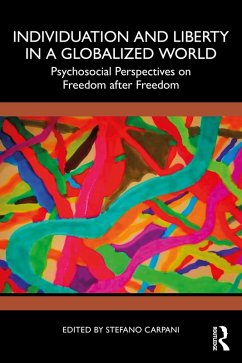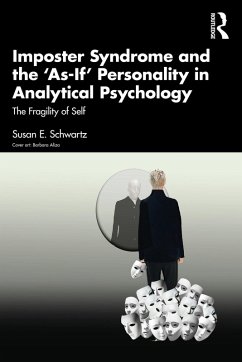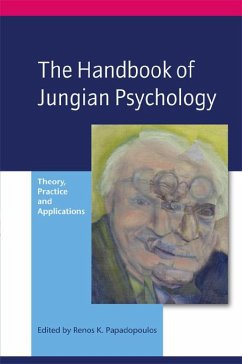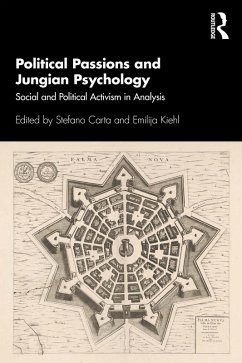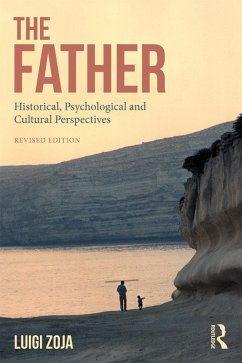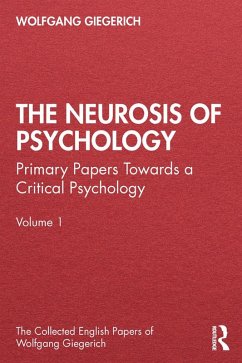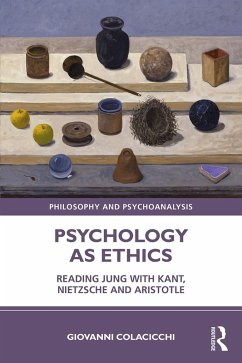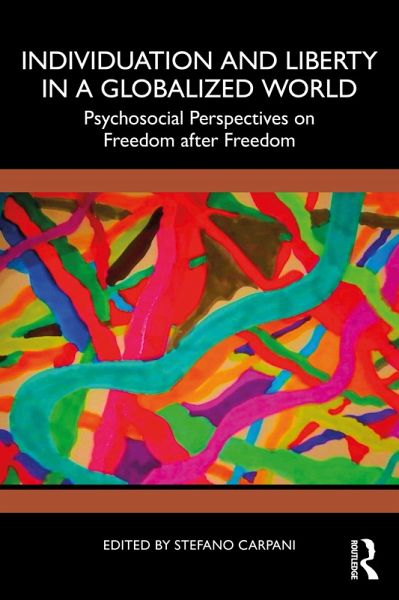
Individuation and Liberty in a Globalized World (eBook, ePUB)
Psychosocial Perspectives on Freedom after Freedom
Redaktion: Carpani, Stefano
Versandkostenfrei!
Sofort per Download lieferbar
32,95 €
inkl. MwSt.
Weitere Ausgaben:

PAYBACK Punkte
16 °P sammeln!
What is the best way to understand the narratives of self-identity at the beginning of the 21st century? This interdisciplinary collection brings together perspectives from analytical psychology, sociology, psychiatry, psychosocial studies, and psychoanalysis to consider questions about individuation and freedom in our unhinged world.The contributors discuss the meaning of, and need for, individuation in individualized and liquid societies. The book begins with a comparison of three approaches: C.G. Jung's individuation, Ulrich Beck's individualization, and Zygmunt Bauman's liquidity. This set...
What is the best way to understand the narratives of self-identity at the beginning of the 21st century? This interdisciplinary collection brings together perspectives from analytical psychology, sociology, psychiatry, psychosocial studies, and psychoanalysis to consider questions about individuation and freedom in our unhinged world.
The contributors discuss the meaning of, and need for, individuation in individualized and liquid societies. The book begins with a comparison of three approaches: C.G. Jung's individuation, Ulrich Beck's individualization, and Zygmunt Bauman's liquidity. This sets the tone for further consideration of topics including guilt, social media, global nomads, and surveillance. Theoretical reflections are enhanced by clinical material, and the book emphasizes the connections between sociology and psychoanalysis, offering significant insights into the importance of psychosocial approaches.
This timely work will be of great interest to academics and scholars of psychosocial studies, Jungian studies, sociology, and politics.
The contributors discuss the meaning of, and need for, individuation in individualized and liquid societies. The book begins with a comparison of three approaches: C.G. Jung's individuation, Ulrich Beck's individualization, and Zygmunt Bauman's liquidity. This sets the tone for further consideration of topics including guilt, social media, global nomads, and surveillance. Theoretical reflections are enhanced by clinical material, and the book emphasizes the connections between sociology and psychoanalysis, offering significant insights into the importance of psychosocial approaches.
This timely work will be of great interest to academics and scholars of psychosocial studies, Jungian studies, sociology, and politics.
Dieser Download kann aus rechtlichen Gründen nur mit Rechnungsadresse in A, B, BG, CY, CZ, D, DK, EW, E, FIN, F, GR, HR, H, IRL, I, LT, L, LR, M, NL, PL, P, R, S, SLO, SK ausgeliefert werden.




